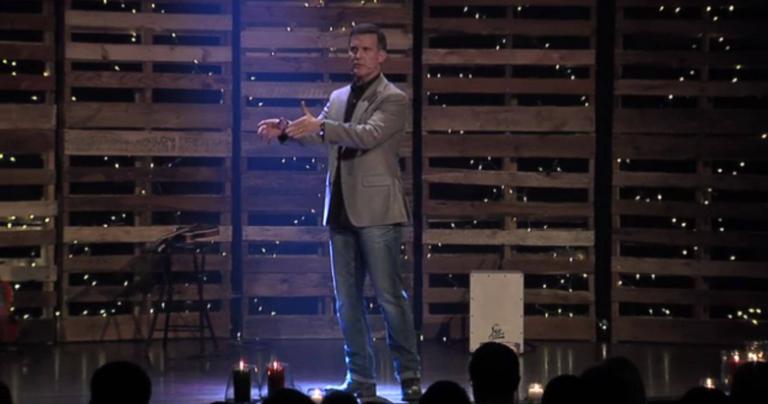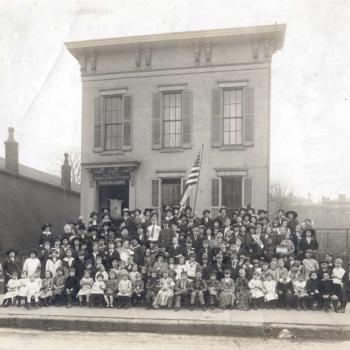“Why Jesus?”, asked our closing litany in church this morning. We answered: “Because we’re both sinners and saints.” It’s what you’d expect (even hope) to hear in a Lutheran setting, but those words seemed all the more timely on a day that began with yet another report about churches abetting sexual abuse of Christians by other followers of Jesus.
A massive investigation by the Houston Chronicle and San Antonio Express-News found that “since 1998, roughly 380 Southern Baptist church leaders and volunteers have faced allegations of sexual misconduct” affecting more than 700 victims. The reporters verified that 220 of those accused had been convicted or pled guilty, with 90 of them still in prison and a hundred more registered sex offenders.
More than 250 were charged with sex crimes after 2008, when a Texas woman molested as a teenager by her youth pastor tried in vain to convince the SBC “to consider prevention policies like those adopted by faiths that include the Catholic Church.” Just last year, Oklahoma Baptist pastor Wade Burleson tried again (as he had in 2007) to get the SBC’s annual meeting to consider measures to prevent such abuse. “It’s not that we can’t do it,” he said, after leaders pushed back on his efforts, “as much as we don’t want to do it.”

This morning’s report on America’s largest Protestant denomination provoked soul-searching from Southern Baptists like Russell Moore, president of the SBC’s Ethics and Religious Liberty Commission. In a post at his blog, he contrasted “the courage and grace of these survivors… with the horrific depravity of those who would use the name of Jesus to prey on them.” We’ll see what concrete repentance and reforms come from the SBC leadership, but to his credit, Moore’s first response was to reject whataboutism and other evasions:
Some have ridiculed this concern as being some irrational sweep into a secular #MeToo moment, implying that the problem is “political correctness” over an issue that is no real problem within church life. Others have suggested that the church should not concern itself with questions of “justice,” and that preaching the gospel itself will resolve matters of injustice. Others have implied that the horrific scandals we have seen in the Roman Catholic church are due to the theology of Catholicism, the nature of a celibate priesthood and so forth. All of these are not only wrongheaded responses, but are deadly dangerous both to the lives of present and future survivors of these horrors and to the witness of the church itself.
There’s much more to be heard, asked, and said. (This morning’s long article was just part one of three.) Coming just two months after the Fort Worth Star-Telegram published its own investigation into hundreds of such cases among Independent Baptists, today’s article should make us ask whether such widespread abuse and its cover-up reflect inherent problems with how pastoral authority is wielded without accountability in autonomous congregations. Almost always, in these cases, by men at the expense of women.
But today I just want to underline Moore’s conclusion: “No church should be frustrated by the Houston Chronicle’s reporting, but should thank God for it. The Judgment Seat of Christ will be far less reticent than a newspaper series to uncover what should never have been hidden.”
Or as evangelical historian and publisher Justin Taylor, a graduate of Southern Baptist Theological Seminary, tweeted:
Incredible journalism / horrific, stomach-churning reality. https://t.co/NK2GrR7V33
— Justin Taylor (@between2worlds) February 10, 2019
Amen. Even as we lament the evil done to these victims within the sanctuary of the church, we should be grateful that serious journalism continues in a time when newspapers are closing, journalists are losing their jobs, and the President of the United States seems oblivious or hostile to the very notion of a free press.

“We are living in a post-truth time of fake news and misinformation,” wrote Christian journalist Sarah Pulliam Bailey in 2016, “something that should be deeply troubling to people of faith who claim to seek truth in their everyday lives.” Yet she found evangelicals especially dismissive of mainstream journalism, too prone to dismiss serious reporting as “fake news” — even as they consumed truly dishonest information passed along through social media and cable TV.
In a 2017 Barna survey, 21% of all respondents named the free press as a source of American greatness — second only to free opportunity and tied with the Constitution. Only 6% of evangelicals in the survey agreed.

Instead, evangelicals are more likely than other Americans to trust religious authorities. (According to a 2016 Pew study, 78% of them do, 25 points higher than the entire sample.) But Bailey warns that we should “trust journalists to act as information gatherers and truth tellers who hold leaders and institutions responsible to the public for their actions, including religious leaders.”
Last fall ProPublica reporter Marshall Allen, a Fuller Seminary graduate who spent three years as a missionary in Kenya, explained the biblical basis for that journalistic role:
Journalists, particularly those who do investigative reporting, tend to annoy people in powerful positions. Some people might think that Christians are supposed to be soft and acquiescent rather than muckrakers who hold the powerful to account. But what I do as an investigative reporter is consistent with what the Bible teaches….
The biblical mandate is to tell the truth. But some conservative Christians don’t seem to understand that. I started out in the Christian media and had run-ins with editors because of my interest in reporting about Christian leaders, even if it made them look bad. Administrators recently censored student journalists at Liberty University, a conservative Christian institution, for, in their view, making the school look bad. But God calls us to publish the truth, not propaganda.
“Christians actually should be the best journalists there are,” one Liberty student journalist told the Washington Post in 2017, “because we believe there is truth out there.” (Of course, I think the same is true of my discipline — one of many connections I see between history and journalism.) EvenEspecially when that truth is told about us, our institutions, and our leaders, those who follow Jesus should be the first to applaud the journalists who find it.












